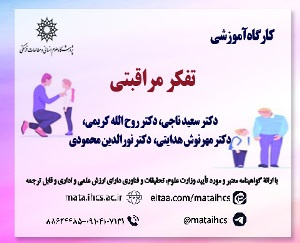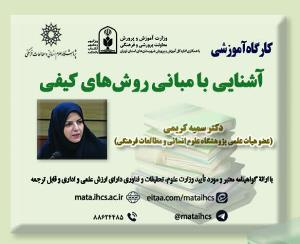Growth Mindset and Cognitive Engagement of Female EFL Learners: Contribution of Risk- aking as a Mediator (مقاله پژوهشی دانشگاه آزاد)
درجه علمی: علمی-پژوهشی (دانشگاه آزاد)
آرشیو
چکیده
Many difficulties learners experience during language learning interfere with their performance, and those associated with their psychology play an integral role in this process. Underpinned by Bandura’s social cognitive theory and Dweck’s implicit theory of intelligence, this article explored how language mindsets influenced female EFL learners’ cognitive engagement through the mediation of risk-taking. Following a quantitative design and drawing on stratified sampling, the researchers ran the Power Analysis Calculator and selected 384 language learners from six institutes of Tabriz, Iran. The data were collected by three questionnaires, including the Language Mindset Inventory of Lou and Noels (2017), University Student Engagement Inventory (USEI) designed by Maroco et al., (2016), and the Barratt Impulsiveness Scale (BIS) of Patton, Stanford and Barratt (1995). The PLS-SEM analysis showed that learners’ growth mindsets were directly related to cognitive engagement. Furthermore, risk-taking significantly mediated this relationship. This finding provides some implications for school psychology to develop in students self-theories that highlight growth and competence instead of limitation and inactivity.چگونه ذهنیت زبانی رشدگرا تعامل شناختی زبان آموزان ایرانی را با میانجی گری خطرپذیری پیش بینی می کند؟
بسیاری از مشکلاتی که زبان آموزان طی یادگیری زبان تجربه می کنند با عملکرد آنها تداخل دارد. در این بین، مشکلاتی که مرتبط با روحیات و ذهنیات آنهاست، در این فرایند نقش اساسی دارند. این مقاله با تکیه بر نظریه های شناختی-اجتماعی باندورا و هوش دووک، به بررسی تاثیر باورهای زبانی بر روی تعامل شناختی با در نظر گرفتن نقش واسطه ای خطرپذیری پرداخته است. محققین دراین طرح تحقیق کمی، از روش نمونه گیری طبقه بندی شده و نرم افزار Power Analysis Calculator استفاده نموده و تعداد 384 زبان آموز را از شش آموزشگاه زبان شهر تبریز(ایران) انتخاب نمودند. داده ها از طریق سه پرسشنامه با نامهای پرسشنامه ساختارهای فکری زبانی لوو و نولز (2017)، پرسشنامه تکانشگری بارت (1995)و پرسشنامه تعامل دانشجویان ماراکو و همکاران (2016) جمع آوری شد. سپس، داده ها توسط نرم افزار Smart-PLSتجزیه و تحلیل شدند. نتایج به دست آمده نشان میدهد که ارتباط مستقیم و معناداری بین ساختارهای فکری رشدگرا و تعامل شناختی وجود دارد. همچنین، نقش واسطه ای خطرپذیری در این رابطه معنادار است. بر اساس این نتایج، نقش روانشناسی در مدرسه ترویج ساختارهای فکری که بر رشد و استعداد نهانی و نه بر محدودیت و ایستایی تأکید دارند، میباشد.







